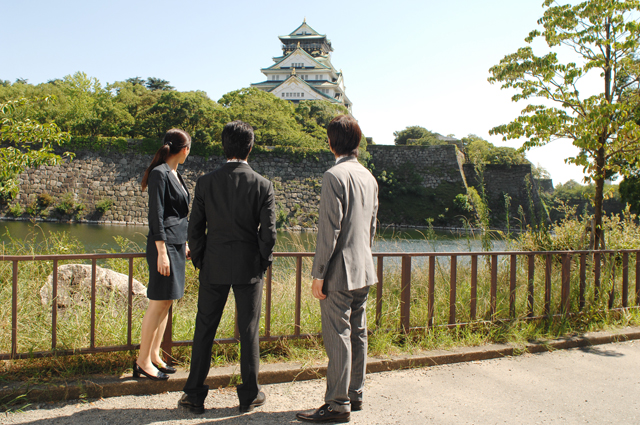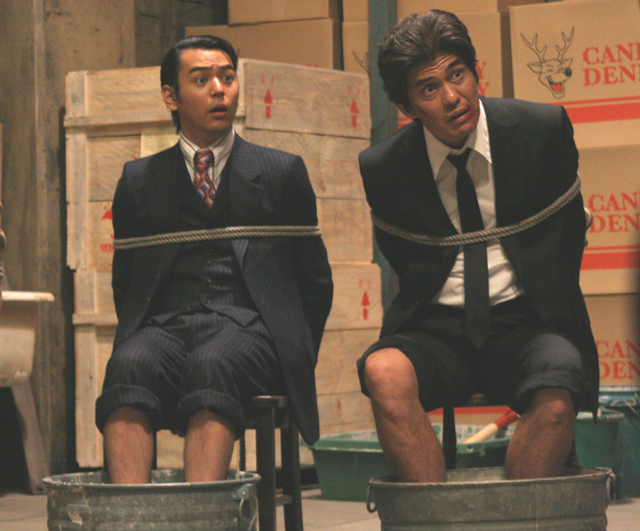The second day of the Japanese Film Festival was a bumpy ride, with one of the films essentially fizzling and dying before my eyes and the other providing solid laughter but not much in the way of substance. It’s a tough life at the festival.
Princess Toyotomi

At first I thought that Princess Toyotomi simply didn’t translate, but as it progressed it became increasingly clear that the film I was watching was simply incoherent, and more than a little bit stupid. Realising that a film’s lack of quality is not a failing on your own part is a great source of relief, because it’s near impossible to describe Princess Toyotomi as anything approaching a good movie.
A team from Japan’s National Auditing Bureau go on an auditing trip of Osaka, only to find that therein lies a conspiracy that goes all the way to the top of Japan. The nature of the conspiracy is made clear several times, but a different reason is given each time until finally the movie collapses under the weight of its muddled ambitions.
Princess Toyotomi is a key example of a movie at war with itself; Initially we’re led to believe that it’s about the legacy of the brutally slain Toyotomi family, then we’re supposed to accept the sovereignty of Osaka, before finally reaching the understanding that Osaka is a bond that exists between fathers and sons. Two of these three concepts make sense at face value, but combining the three means that this is a movie that never truly knows what to say.
Character motivation is frequently either vague or illogical, and the twists are so nonsensical that no real meaning can be derived from any of this.
Ultimately the lesson of Princess Toyotomi is that you can’t put a price on wounded masculinity, so don’t go crying to the government for Â¥500 million. The cast is seeded with seasoned veterans, but they simply couldn’t make me care for anything in this film. Osaka nationalists may feel differently, but Princess Toyotomi is definitely not a film for international markets.
Saying this as someone who enjoys the distinctive feel of a lot of Japanese cinema, that is a particularly damning indictment.
The Magic Hour

Mitani Koki’s 2008 film is rather less of a drag than A Ghost Of A Chance, though they’re both enjoyable movies. This is much more self-consciously a movie, set as it is on the outskirts of the industry. It’s Japan’s reverse Bowfinger: The Magic Hour shows us precisely where chubby rain comes from.
Night club manager Bingo is caught in a hotel room with the local mob boss’s woman, Mari. He avoids getting concrete shoes by suggesting that he’s friendly with the legendary sniper Della Togashi, and is given five days to produce him before getting slaughtered. Bingo, of course, does not know Della Togashi, so he hires an actor who is convinced they're shooting a movie. Amazingly, the gambit works, but Bingo has to think quickly if he’s not going to fashion his new friend into a real killer.
The Magic Hour is inherently silly and it knows it, and is therefore able to sustain itself for its two hour running time. The game takes so long to be given away that one could almost expect Bingo to cruise through to a bumpy but flawless victory. The high level of gangster farce is welcome because the rest of the film is flimsy as all Hell; Bingo is a night club manager who never has customers and doesn’t bother showing up to work, and Mari is written to order – whatever purpose the script needs her to serve on this page, she’ll do it regardless of the amount of sense it makes.
It seems almost appropriate for so much of the movie to be built on cardboard scaffolding, as it is shot on an extremely compact soundstage and all of its characters are deliberately too stupid to live. The Magic Hour is a lot of fun if, again, a little underwritten. This is an odd thing to say about a film in which a guy can’t stop licking a letter opener.
I give it a bottomless bottle of soy sauce out of ten.
